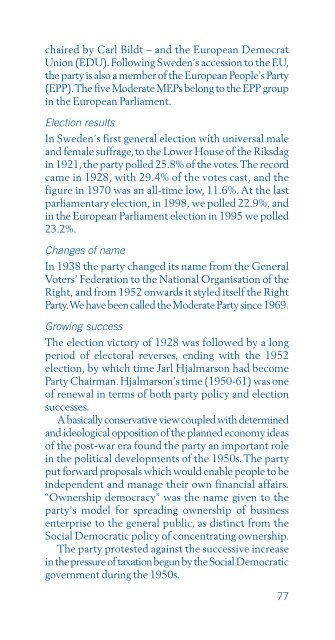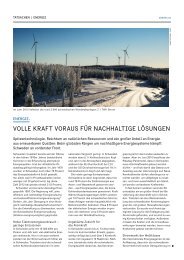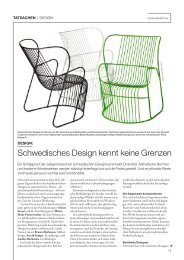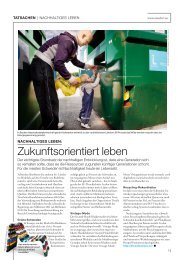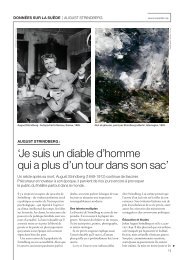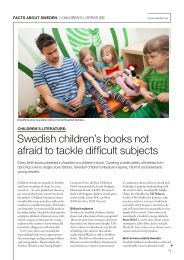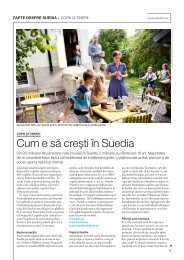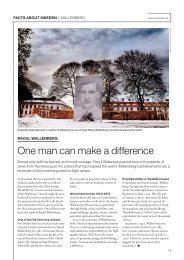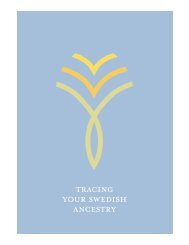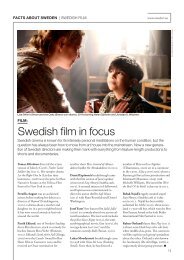Election Guide 2002 - Sweden.se
Election Guide 2002 - Sweden.se
Election Guide 2002 - Sweden.se
Create successful ePaper yourself
Turn your PDF publications into a flip-book with our unique Google optimized e-Paper software.
chaired by Carl Bildt – and the European Democrat<br />
Union (EDU). Following <strong>Sweden</strong>’s accession to the EU,<br />
the party is also a member of the European People’s Party<br />
(EPP). The five Moderate MEPs belong to the EPP group<br />
in the European Parliament.<br />
<strong>Election</strong> results<br />
In <strong>Sweden</strong>’s first general election with universal male<br />
and female suffrage, to the Lower Hou<strong>se</strong> of the Riksdag<br />
in 1921, the party polled 25.8% of the votes. The record<br />
came in 1928, with 29.4% of the votes cast, and the<br />
figure in 1970 was an all-time low, 11.6%. At the last<br />
parliamentary election, in 1998, we polled 22.9%, and<br />
in the European Parliament election in 1995 we polled<br />
23.2%.<br />
Changes of name<br />
In 1938 the party changed its name from the General<br />
Voters’ Federation to the National Organisation of the<br />
Right, and from 1952 onwards it styled it<strong>se</strong>lf the Right<br />
Party. We have been called the Moderate Party since 1969.<br />
Growing success<br />
The election victory of 1928 was followed by a long<br />
period of electoral rever<strong>se</strong>s, ending with the 1952<br />
election, by which time Jarl Hjalmarson had become<br />
Party Chairman. Hjalmarson’s time (1950-61) was one<br />
of renewal in terms of both party policy and election<br />
succes<strong>se</strong>s.<br />
A basically con<strong>se</strong>rvative view coupled with determined<br />
and ideological opposition of the planned economy ideas<br />
of the post-war era found the party an important role<br />
in the political developments of the 1950s. The party<br />
put forward proposals which would enable people to be<br />
independent and manage their own financial affairs.<br />
“Ownership democracy” was the name given to the<br />
party’s model for spreading ownership of business<br />
enterpri<strong>se</strong> to the general public, as distinct from the<br />
Social Democratic policy of concentrating ownership.<br />
The party protested against the successive increa<strong>se</strong><br />
in the pressure of taxation begun by the Social Democratic<br />
government during the 1950s.<br />
77


